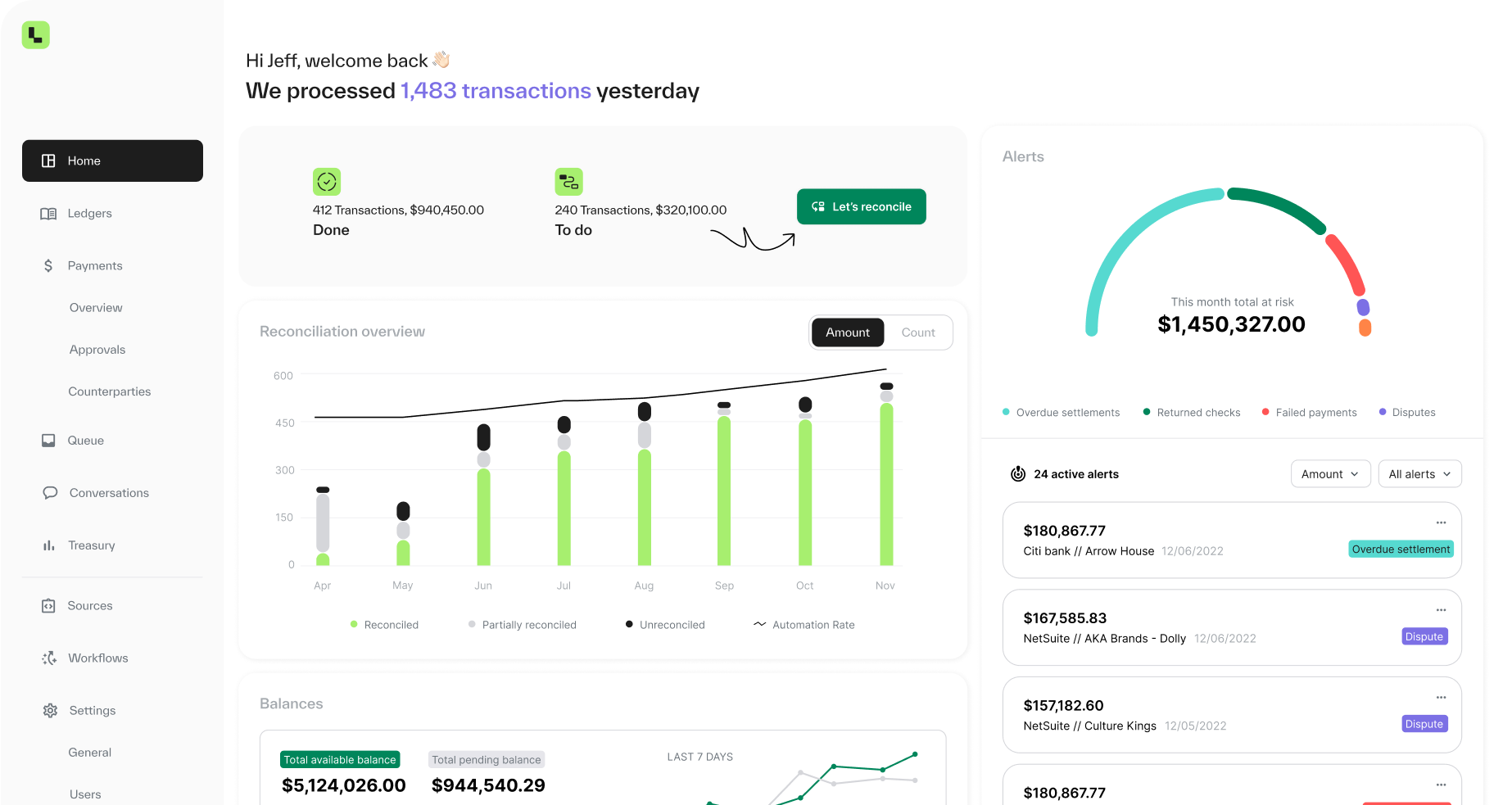The rapid adoption of digital payments has become a great challenge for finance teams. According to one report, teams spend as much as 40% of their time processing transactions. To blame is disparate, unstructured data, they say. In a separate survey, 48% of teams peg fragmented data as the largest impediment to closing their books.
Tal Kirschenbaum is well acquainted with the struggle. He worked a Melio, a business-to-business (B2B) payments platform for small companies, where he saw finance teams become the victims of their own success.
“Some companies have payments expertise and are able to invest R&D resources into building great internal solutions to handle the problem, but that’s not a feasible option for most businesses,” Kirschenbaum told TechCrunch in an email interview. “Finance teams are forced to work as ‘human glue’ to hold together a complex payments stack of payment processors, banks, enterprise resource management platforms, databases and more.”
That led Kirschenbaum to co-found a fintech startup, Ledge, with Asaf Kotzer and Ariel Weiss in 2022. Through Ledge, he hoped to empower finance professionals to better manage day-to-day tasks like monitoring and alerting while also giving them strategic insights to boost their bottom line.
Ledge automates multi-way reconciliation, ensuring a company’s internal records of payments owed and due match the transactions that appear in its bank statements. The also enables real-time ledgering, updating the record of all of a company’s financial statements by connecting to existing data, payments and banking infrastructures.
“Ledge’s big data pipeline aggregates and normalizes data from multiple sources,” Kirschenbaum added. “The platform’s AI supports predictive rule building and smart matching as well as insights and forecasting. And it offers pre-built integrations plus a drag-and-drop interface that can be set up by finance teams within a matter of hours.”
From Ledge’s dashboard, companies can see aggregate balances across accounts and financial services providers. They also get AI-powered recommendations on how to optimize payments and spending.
“Ledge learns how finance teams operate in order to automate their operational activities and glean insights from their payment activities. This kind of learning is often about identifying either patterns or anomalies (e.g. a failed payment),” Kirschenbaum explained. “In addition, Ledge’s access to data sets of both incoming and outgoing transactions across business models and industries enables the forecasting of cash flows and optimizing treasury management on a day-by-day basis.”

Image Credits: Ledge
It’s early days for Ledge, which Kirschenbaum says has only has a handful of customers at present. But he sees the company as standing alone in the thoroughness of its offering.
“Finance teams dealing with a high volume of digital payments and complex payment stacks have been really underserved by the market until now, so our main competition is mostly the status quo — namely, finance teams needing to manually compile massive amounts of data from multiple sources into a spreadsheet,” Kirschenbaum said. “There are solutions on the market that are trying to solve this problem, such as Modern Treasury, Moov and Sequence, but instead of being tailored to finance teams, most are instead API-led and rely on R&D teams to implement and maintain. They also tend to be geared towards fintech companies who by their very nature are more payments-savvy than most other companies and primarily focus on money-movement automation.”
Investors agree, apparently. Ledge this week closed a $9 million seed round led by NEA with participation from Vertex Ventures, FJ Labs and Picus Capital. With the infusion of new cash, Kirschenbaum says that Ledge will introduce greater treasury management capabilities, improve the platform’s algorithms, bolster customer acquisition efforts and grow the company’s workforce.
Ledge no doubt benefitted from the increased cross-industry interest in finance automation technologies. According to a recent Gartner survey of CFOs, one third said they’ll prioritize investments in back-office automation technologies over the next year.
Investors are betting economic fears will prompt companies to redouble their efforts to control spending, boosting demand for automation tools. According to Pitchbook (cited by The Wall Street Journal), startups making AI-powered accounting software amassed $233.3 million in venture capital between January 2022 and the end of last March, surpassing the $210.2 million in funding for all of 2021.
Said NEA partner Jonathan Golden in an emailed statement: “As an increasing percentage of B2B payment volume flows to digital channels and the number of businesses with complex money movement increases, tooling to reduce workloads for finance team is becoming a necessity … Ledge is built by finance professionals for finance teams; we believe the founders are poised to confront this challenge, as they have faced the problem themselves.”
Credit: Source link


Comments are closed.